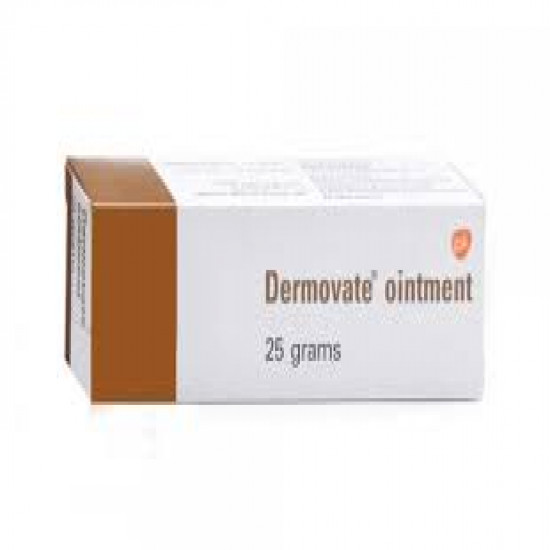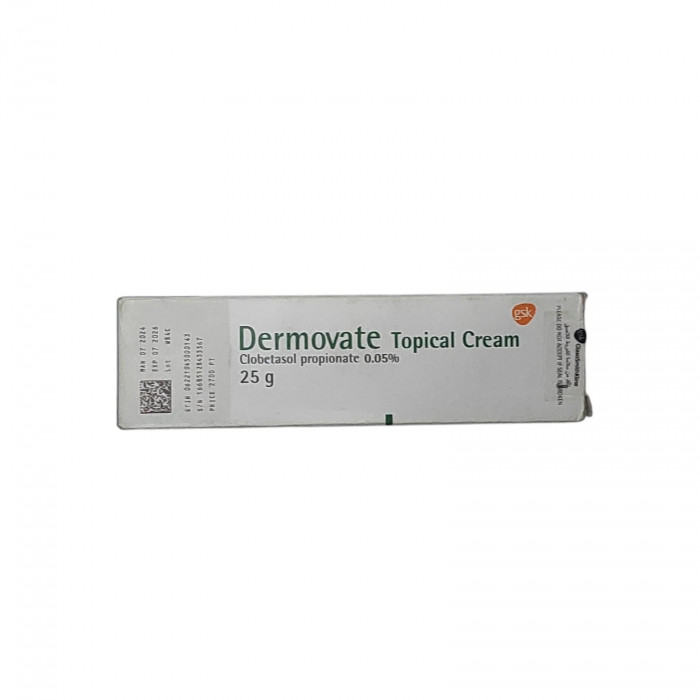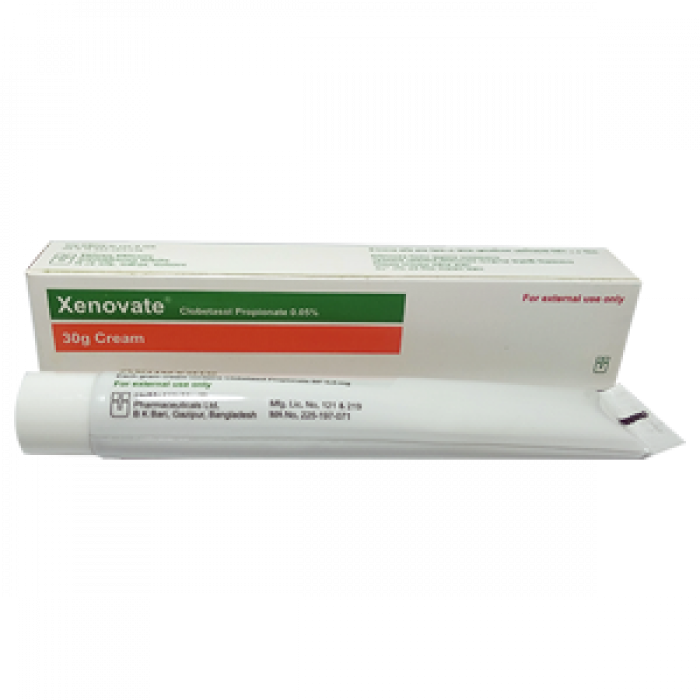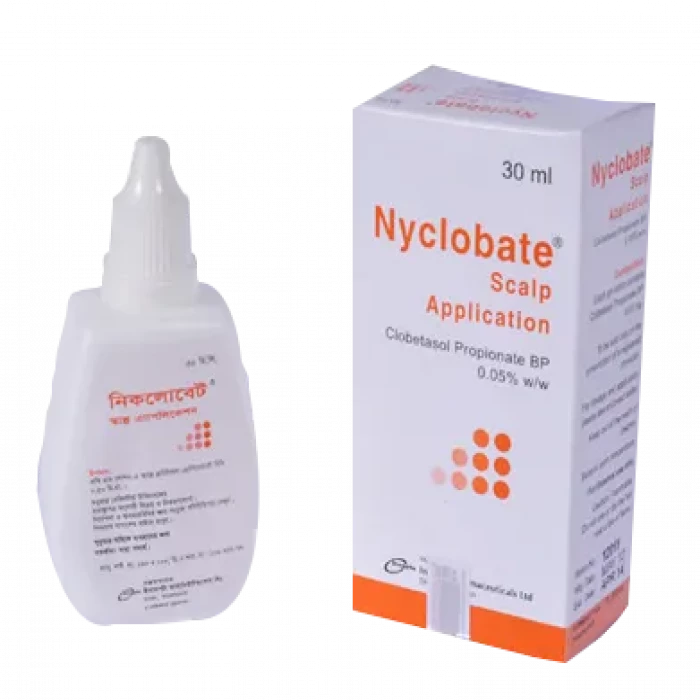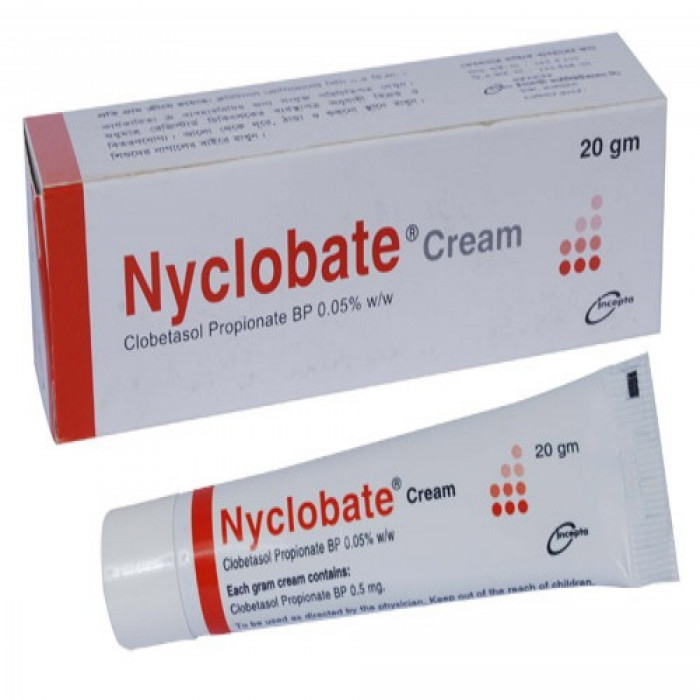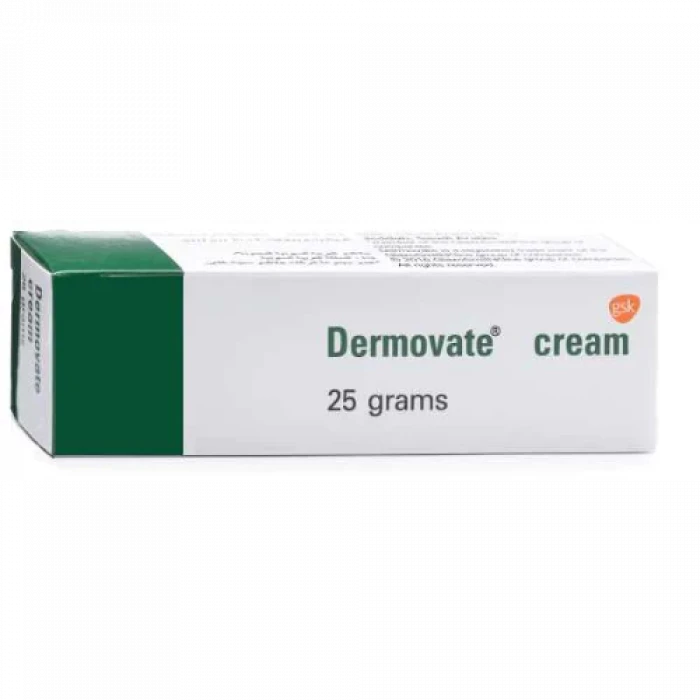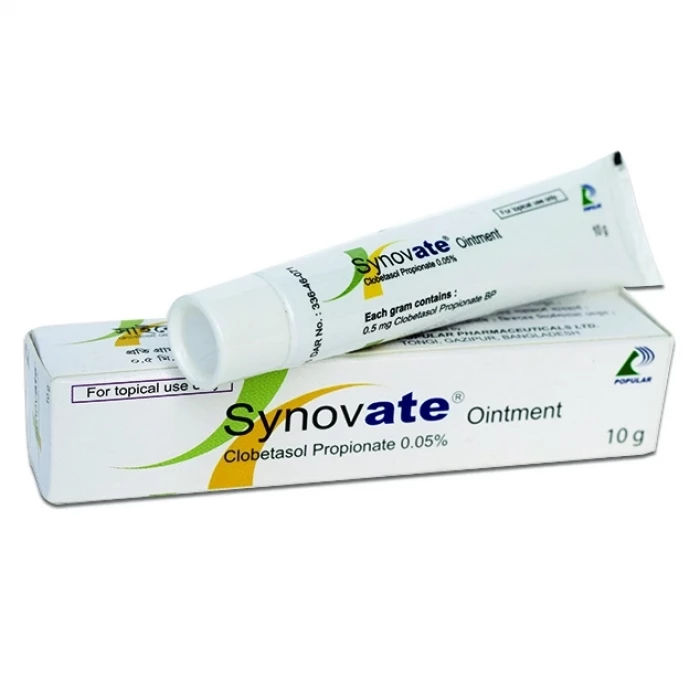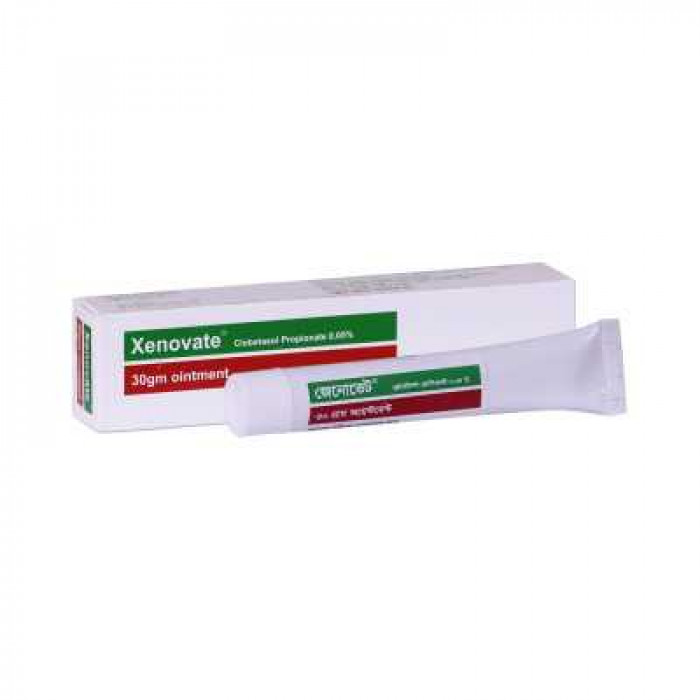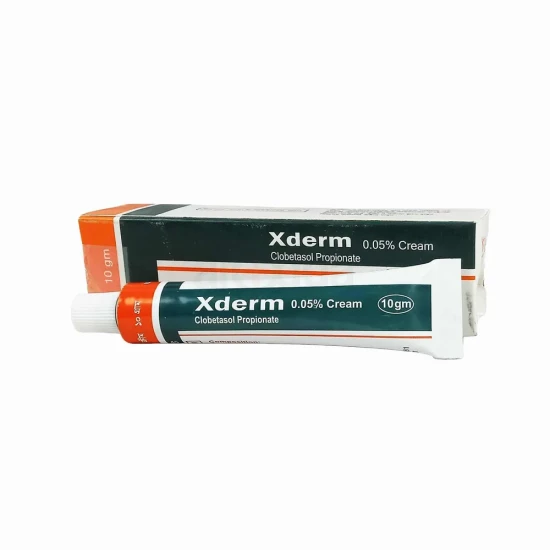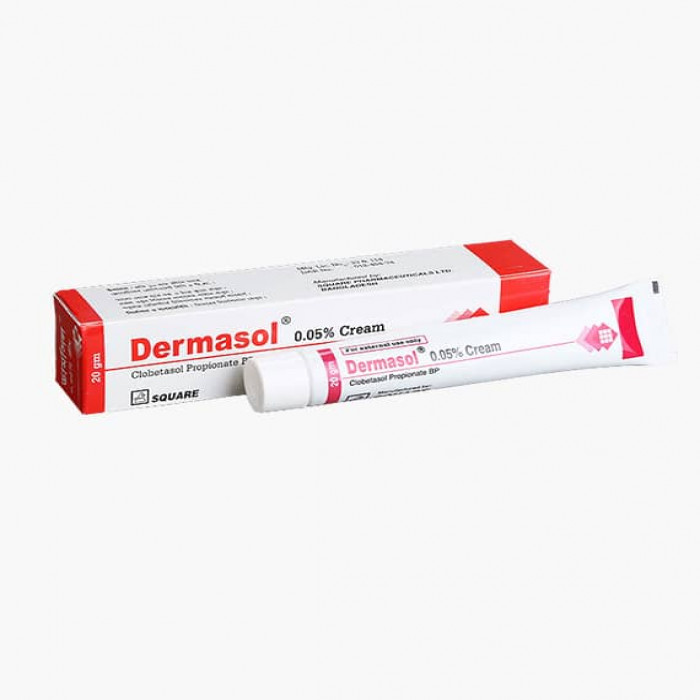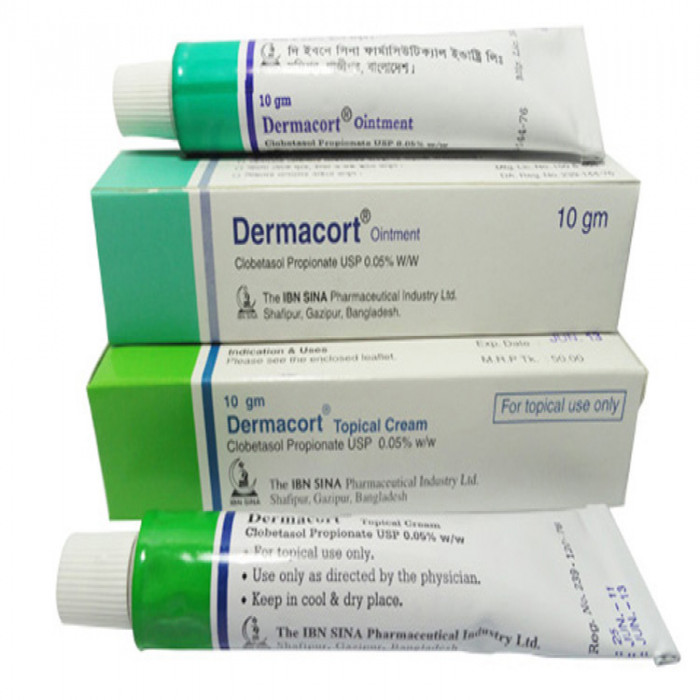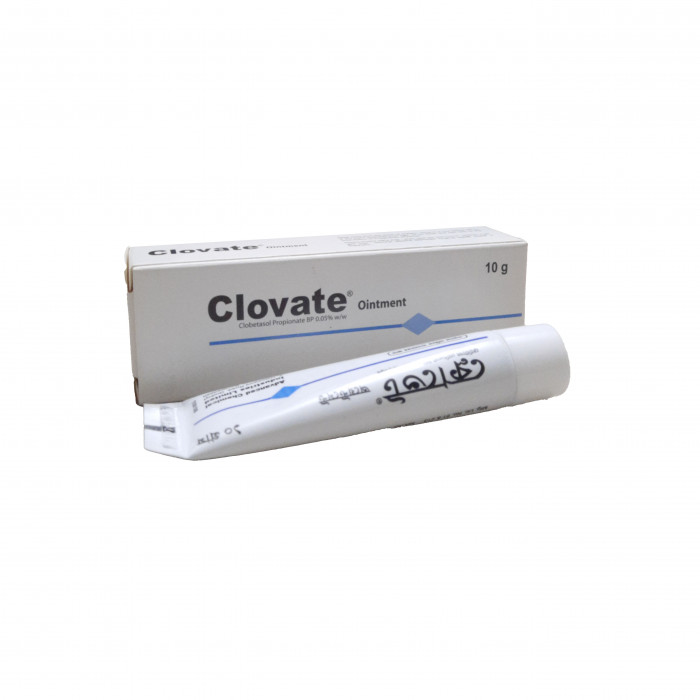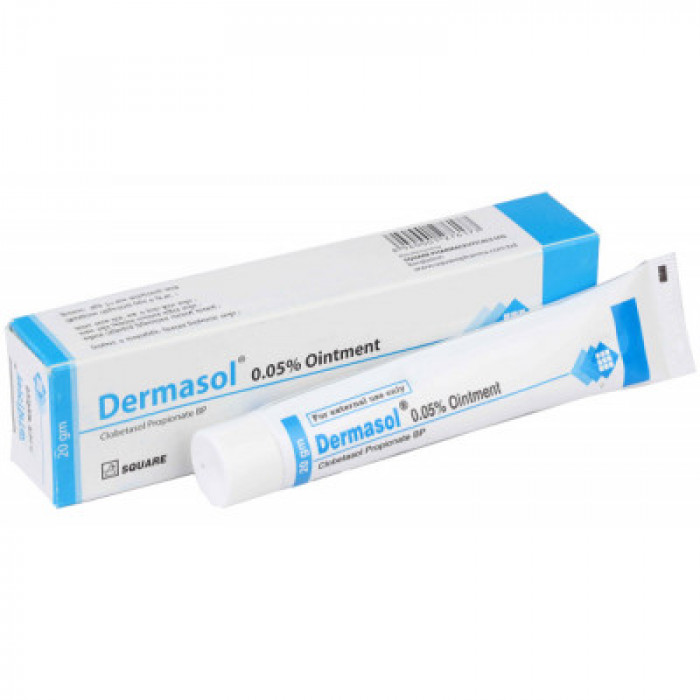
✔ 100% Authentic Product
👁️ Currently Viewing 7018
Dermasol 0.05% Ointment 20gm
Clobetasol Propionate is prescribed to treat the dermatoses listed below in adults, the elderly, and children over the age of one year.
Dermatoses that are obstinate Discoid lupus erythematosus Lichen planus Other skin conditions that do not respond well to less potent steroids Psoriasis (excluding broad plaque psoriasis) (excluding broad plaque psoriasis) Dermatoses that are obstinate Discoid lupus erythematosus Lichen planus
Discount
Price: ৳ 72
MRP:
৳
75.5
5%
Off

100% Genuine Products, Guaranteed

Safe & Secure Payments, Always

Fast, Secure & Efficient Delivery

Proper Packaging
 Cash on Delivery - All over Bangladesh
Cash on Delivery - All over Bangladesh Regular Delivery - 12-24 Hours, Dhaka City* Charge Tk.39-59
Regular Delivery - 12-24 Hours, Dhaka City* Charge Tk.39-59 Regular Delivery - 24-48 Hours, Other Cities* Charge Tk.99-110
Regular Delivery - 24-48 Hours, Other Cities* Charge Tk.99-110
 ফ্রি ডেলিভারিঃ - ৯৯৯ টাকা+ অর্ডারে, ঢাকা
শহরে
ফ্রি ডেলিভারিঃ - ৯৯৯ টাকা+ অর্ডারে, ঢাকা
শহরে ফ্রি ডেলিভারিঃ - ২৯৯৯ টাকা+ অর্ডারে, ঢাকার
বাহিরে
ফ্রি ডেলিভারিঃ - ২৯৯৯ টাকা+ অর্ডারে, ঢাকার
বাহিরে
100% Genuine Products, Guaranteed
Safe & Secure Payments, Always
Fast, Secure & Efficient Delivery
Proper Packaging
 Cash on Delivery - All over Bangladesh
Cash on Delivery - All over Bangladesh Regular Delivery - 12-24 Hours, Dhaka City* Charge Tk.39-59
Regular Delivery - 12-24 Hours, Dhaka City* Charge Tk.39-59 Regular Delivery - 24-48 Hours, Other Cities* Charge Tk.99-110
Regular Delivery - 24-48 Hours, Other Cities* Charge Tk.99-110 ফ্রি ডেলিভারিঃ - ৯৯৯ টাকা+ অর্ডারে, ঢাকা
শহরে
ফ্রি ডেলিভারিঃ - ৯৯৯ টাকা+ অর্ডারে, ঢাকা
শহরে ফ্রি ডেলিভারিঃ - ২৯৯৯ টাকা+ অর্ডারে, ঢাকার
বাহিরে
ফ্রি ডেলিভারিঃ - ২৯৯৯ টাকা+ অর্ডারে, ঢাকার
বাহিরে
✅ Description:
- Dermasol 0.05% Ointment contains Clobetasol, which is a strong corticosteroid used to treat various inflammatory skin conditions such as psoriasis, eczema, and dermatitis in adults and adolescents (aged 12 years or above) that have not responded to milder steroid creams or ointments.
- Psoriasis is a chronic skin condition characterized by the rapid growth of skin cells that leads to patches of thick, red skin with silvery scales. It can occur on various parts of the body, including the elbows, knees, scalp, lower back, face, palms, and soles. Eczema or dermatitis is a group of skin conditions that cause dry, itchy skin and rashes on different parts of the body, such as the face, inside the elbows, behind the knees, and on the hands and feet.
- Dermasol 0.05% Ointment is contraindicated in patients with bacterial, fungal, or viral infections such as herpes simplex, chickenpox, and tuberculosis. Before using Dermasol 0.05% Ointment, inform your doctor if you have a skin infection, diabetes, adrenal gland problem, scheduled surgery, acne, plaques around your mouth, underarms, anus, or genitals, and liver diseases.
- Use of Dermasol 0.05% Ointment during pregnancy should be recommended by a doctor, and it should be used with caution by breastfeeding women. Dermasol 0.05% Ointment is not recommended for use in children under 12 years of age. The most common side effects of using Dermasol 0.05% Ointment are thinning of the skin, widening of small veins in the skin, skin discomfort, and dryness. If any of these symptoms worsen or persist, contact your doctor.
Safety Advices

Alcohol
CAUTION
Dermasol 0.05% Ointment may not interact with alcohol.

Pregnancy
CONSULT YOUR DOCTOR
Pregnant women should consult a doctor before using Dermasol 0.05% Ointment.

Breastfeeding
CAUTION
Breastfeeding women should exercise caution when using Dermasol 0.05% Ointment. If your doctor prescribes Dermasol 0.05% Ointment for your chest, make sure the afflicted region does not come into touch with the baby's mouth during nursing.

Driving
SAFE
Dermasol 0.05% Ointment is not expected to have any effects on your ability to drive and use machines.

Kidney
CAUTION
Dermasol 0.05% Ointment should be used in patients with kidney diseases only when prescribed by a doctor.

Liver
CAUTION
Dermasol 0.05% Ointment should be used with caution in patients with liver disease.
✔️ Uses of Dermasol 0.05% Ointment
- Treats inflammatory conditions of the skin such as psoriasis, eczema, dermatitis, etc
✔️ How does Dermasol 0.05% Ointment work?
Clobetasol propionate, the active ingredient in Dermasol 0.05% Ointment, is a potent topical corticosteroid that works by suppressing the immune system and reducing the production of inflammatory chemicals in the body. This results in the relief of symptoms such as itching, redness, and inflammation associated with various skin conditions, including psoriasis, eczema, and dermatitis.
✔️ Side Effects of Dermasol 0.05% Ointment
- Skin atrophy
- Telangiectasia
- Skin irritation
- Dry skin
- Thinning of the skin
- Widened small veins in the skin
✔️ Quick Suggestions:
- Dermasol 0.05% Ointment is used to treat redness, swelling, itching, and discomfort of various skin conditions.
- It should be applied to the affected areas as a thin film two or three times daily, or as advised by your doctor.
- Don't use it more often or for longer than advised by your doctor.
- Don't cover the area being treated with airtight dressings such as bandages unless directed by a doctor, as this may increase the risk of side effects.
- Avoiding getting in contact with harsh soaps, detergents, and rough fabrics.
- If you think the area of skin you are treating has become infected you should stop using Dermasol Ointment and consult your doctor.
- Consult your doctor if your skin condition has not improved after four weeks of treatment. Do not use it for more than 4 consecutive weeks at a time.
✔️ Indication of Dermasol 0.05% Ointment
Dermasol 0.05% Ointment is used for Autoimmune skin diseases such as psoriasis, eczema, lichen planus, and discoid lupus erythematosus.
✔️ Pharmacology
Clobetasol Propionate is a potent topical corticosteroid that has anti-inflammatory, anti-pruritic, and vasoconstrictor properties. It acts by inhibiting late-phase allergic reactions through various mechanisms. It reduces the density of mast cells, chemotaxis, and activation of eosinophils. Additionally, it inhibits arachidonic acid metabolism and reduces cytokine production.
✔️ Dosage and Administration of Dermasol 0.05% Ointment
Adults, the elderly, and children over the age of one year should gently rub Clobetasol Propionate Cream or Ointment into the affected skin areas twice daily. Exacerbations can be treated with Clobetasol Propionate in short courses. Clobetasol's effectiveness can be increased if necessary by occluding the treatment region with polythene film in more resistant lesions, particularly those with hyperkeratosis. Only overnight occlusion is usually sufficient to produce an acceptable response. Clobetasol Propionate is a super-high potency topical corticosteroid that should be used for no more than two weeks at a time. The maximum weekly dose should not exceed 50 gm. Courses for children should be limited to five days and reviewed weekly, if possible. The route of administration is cutaneous. Creams are especially suited to wet or moist surfaces. Ointments are especially beneficial for dry, liquefied, or scaly lesions.
- Dermasol Ointment is used to treat skin conditions such as redness, swelling, itching, and discomfort.
- It should be applied as a thin film to the affected areas twice or three times daily, or as directed by your doctor.
- Use it no more frequently or for any length of time than your doctor has prescribed.
- Unless directed by a doctor, do not cover the area being treated with airtight dressings such as bandages, as this may increase the risk of side effects.
- If you suspect that the area of skin you are treating has become infected, discontinue the use of Dermasol Ointment and consult your doctor.
- If your skin condition has not improved after four weeks of treatment, see your doctor. Do not use it for more than four weeks in a row.
✔️ Interaction
The metabolism of corticosteroids can be inhibited by certain medications that also inhibit the cytochrome P450 3A4 enzyme (CYP3A4), which is responsible for metabolizing many drugs, including corticosteroids. Examples of such medications include ritonavir, a medication used to treat HIV, and itraconazole, an antifungal medication.
When co-administered with corticosteroids, these medications can inhibit the metabolism of the corticosteroids, leading to increased systemic exposure and potentially increasing the risk of corticosteroid-related side effects. Therefore, caution should be exercised when co-administering corticosteroids with medications that inhibit CYP3A4, and appropriate dose adjustments may be necessary. It is important to consult with a healthcare provider or pharmacist before taking any new medications to ensure safe and effective treatment.
✔️ Contraindications
Desloratadine should not be used by patients who have a known hypersensitivity to any of its ingredients. In addition, there are several other conditions where the use of Desloratadine is contraindicated, including:
- Rosacea: a skin condition that causes redness, flushing, and small, red, pus-filled bumps on the face
- Acne vulgaris: a skin condition that causes pimples, blackheads, and whiteheads
- Perioral dermatitis: a skin condition that causes redness, bumps, and flaky patches around the mouth and nose
- Perianal and vaginal pruritus: itching around the anus or vagina
- Pruritus without inflammation: itching without any signs of inflammation or rash
- Untreated skin diseases: any untreated skin condition where the use of Desloratadine may exacerbate the symptoms or delay the treatment of the underlying condition.
Patients with any of these conditions should consult with their healthcare provider before taking Desloratadine.
✔️ Pregnancy & Lactation
The use of Clobetasol Propionate cream in pregnant women has yielded mixed results. Corticosteroids used topically on pregnant animals can cause fetal development problems. The applicability of this discovery to people has yet to be determined. Clobetasol Propionate Cream should only be used during pregnancy and lactation if the predicted benefit outweighs the risks. to the mother outweighs the treatment's potential hazards.
✔️ Precautions & Warnings
When using occlusive dressings, the skin should be cleaned before applying a new dressing. In psoriasis, topical corticosteroids should be administered with caution since they can cause rebound relapses and local or systemic toxicity due to reduced skin barrier function. Treatment should be limited to 5 days if applied to the face. When using Clobetasol Propionate on eyelids, be careful not to get it in your eyes, as this might cause cataracts and glaucoma.
✔️ Storage Conditions
Keep the temperature below 30°C and away from light and moisture. Do not allow yourself to become frozen. Keep out of children's reach.
⚠️Disclaimer:
At ePharma, we’re committed to providing accurate and accessible health information. However, all content is intended for informational purposes only and should not replace medical advice from a qualified physician. Please consult your healthcare provider for personalized guidance. We aim to support, not substitute, the doctor-patient relationship.





